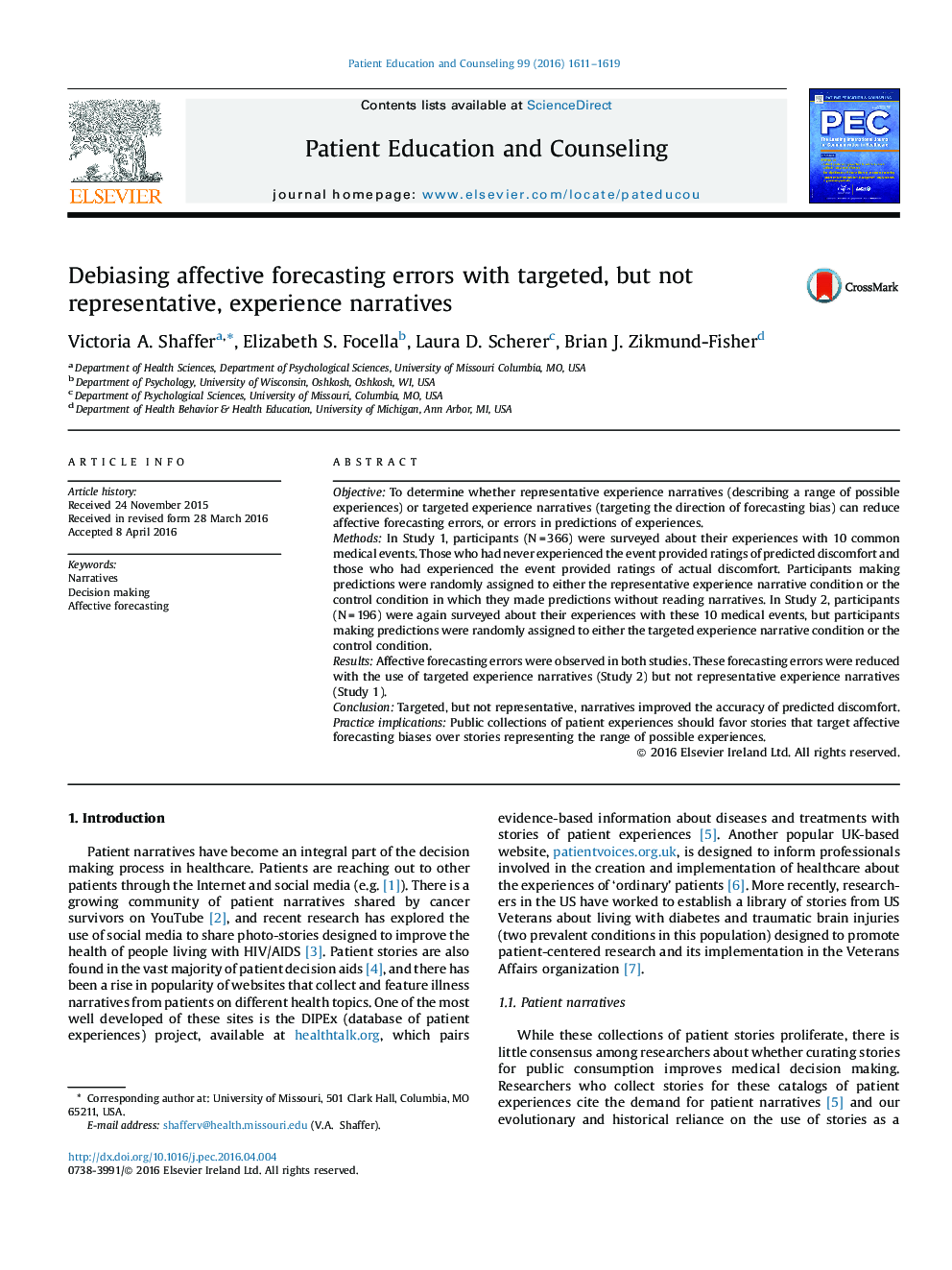| کد مقاله | کد نشریه | سال انتشار | مقاله انگلیسی | نسخه تمام متن |
|---|---|---|---|---|
| 3813473 | 1408870 | 2016 | 9 صفحه PDF | دانلود رایگان |
• Patient narratives play an important role in decisions about healthcare.
• It is unclear whether curating stories for public consumption improves decisions.
• We examined whether experience narratives can improve affective forecasting.
• Forecasting errors were debiased with targeted experience narratives.
• DIPEx (or related projects) should use stories that target forecasting biases.
ObjectiveTo determine whether representative experience narratives (describing a range of possible experiences) or targeted experience narratives (targeting the direction of forecasting bias) can reduce affective forecasting errors, or errors in predictions of experiences.MethodsIn Study 1, participants (N = 366) were surveyed about their experiences with 10 common medical events. Those who had never experienced the event provided ratings of predicted discomfort and those who had experienced the event provided ratings of actual discomfort. Participants making predictions were randomly assigned to either the representative experience narrative condition or the control condition in which they made predictions without reading narratives. In Study 2, participants (N = 196) were again surveyed about their experiences with these 10 medical events, but participants making predictions were randomly assigned to either the targeted experience narrative condition or the control condition.ResultsAffective forecasting errors were observed in both studies. These forecasting errors were reduced with the use of targeted experience narratives (Study 2) but not representative experience narratives (Study 1).ConclusionTargeted, but not representative, narratives improved the accuracy of predicted discomfort.Practice implicationsPublic collections of patient experiences should favor stories that target affective forecasting biases over stories representing the range of possible experiences.
Journal: Patient Education and Counseling - Volume 99, Issue 10, October 2016, Pages 1611–1619
